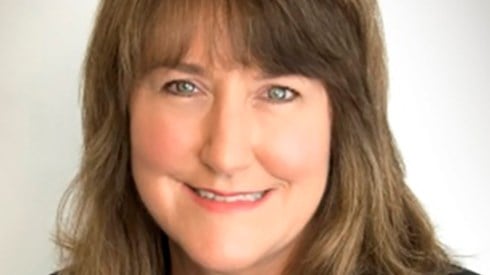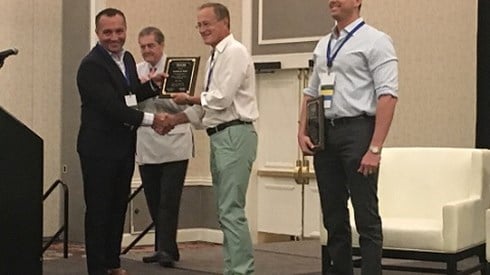Debbie Walker: Captive Insurance Person of Interest

December 03, 2018

As part of our ongoing commitment to provide thoughtful commentary concerning issues impacting captives and the broader insurance markets, we spoke with Debbie Walker, senior deputy commissioner of the Captive Insurance Companies Division of the North Carolina Department of Insurance (NCDOI), who is responsible for the oversight of the licensing and ongoing regulation of all North Carolina captive insurance companies. Ms. Walker's responsibilities also include the marketing and promotion of North Carolina's captive insurance program for the purpose of developing the captive industry in North Carolina.
Ms. Walker, it appears from your background that you began life in the private sector in the insurance industry and then moved over to the public regulatory side. What led to the switch, and has your private sector background been instrumental in the regulatory side?
Early in my career following college, I held several insurance accounting positions in the private sector with responsibilities that included the preparation and analysis of budgets; statutory and generally accepted accounting principles financial statements, including the National Association of Insurance Commissioners annual and quarterly statements; and consolidated financial statements. While working in the private sector, I obtained the Fellow, Life Management Institute (FLMI) designation. These insurance accounting positions and the FLMI coursework provided me with a strong basic understanding of insurance accounting and insurance company operations. During that time, I took additional college accounting coursework to meet the requirements to sit for the Certified Public Accountant (CPA) exam. When an opportunity arose for me to accept a financial analyst position with the North Carolina Department of Insurance, I was excited to make the move from industry to regulation to learn more about the regulators' use of company financial information in order to evaluate insurers' solvency and compliance. Not long after starting my regulatory career, I obtained my CPA designation.
The education and industry experiences from early in my career, as well as the additional experience I gained in the private sector as an insurance accounting manager later in my career, provided practical industry experience and insight that have been beneficial to me in my role as an insurance regulator.
We note that the North Carolina law provides for the captive commissioner to perform examinations on a "targeted basis" versus on a mandatory schedule. It is also possible to secure an exemption from filing an annual report if all audit requirements are met. While certainly beneficial to captives, what else do you do in order to ensure the captives are financially sound?
The department, by statute, does have authority to examine a captive insurer whenever it is deemed prudent. Captive insurers that are well managed, maintain sufficient liquidity to meet their obligations, operate in compliance with the captive laws, and conduct business based on their department-approved business plans may not be the subject of a department examination. However, the department evaluates, no less than on an annual basis, the solvency and compliance of all North Carolina-licensed captive insurers.
The department has a dedicated team of analysts, examiners, and actuaries, and this combined group of professionals has many years of insurance regulatory knowledge and experience. Upon the licensing of a captive insurer, direct and supervisory level financial analysts are assigned to handle the ongoing financial regulation and monitoring of the insurer's solvency and compliance. Each insurer is required to submit an annual report to the department, and an independent CPA audit report and a statement of actuarial opinion are also required to be submitted to the department each year. The department places a great deal of reliance on the annual audit report and statement of actuarial opinion, which are both third-party verifications about the financial condition of the insurer.
Upon receipt of that information, the assigned analysts conduct a financial analysis to determine whether any solvency or compliance issues exist. If issues are detected, the analysts determine the next appropriate actions, based on the significance of the issues. These actions may range from scheduling a conference call or sending a written request for more information to taking immediate regulatory action such as a restriction or suspension of the insurer's license.
The analysts keep the department's management informed of material issues that arise, and discussions with management are held to determine the next steps that should be taken. If issues arise that cannot be addressed by phone calls, emails, or meetings, the department may conduct a targeted or full-scope examination in order to obtain the necessary information to resolve the issue or to determine the appropriate next course of action by the department.
One feature of North Carolina's captive law that you mentioned is authority granted to the commissioner to waive the annual report requirement, if the audit report requirement, which includes an independent CPA audit of the insurer and the filing of the CPA's audit report with the department, will be met. The department evaluates each waiver request on a case-by-case basis and considers factors such as historical financial results, compliance with the laws, and the insurer's current department-approved business plan.
Since the enabling captive legislation was passed, North Carolina has seen at least 63 captive insurance companies redomesticate there. Why such success in convincing captives to change their domicile and particularly why the high percentage from non-US domiciles?
We attribute the captive redomestications to the department's regulatory philosophy and customer service-oriented approach. The captive regulatory team's goal is to provide reasonable, appropriate, and consistent captive insurer regulation. Additionally, in step with Commissioner Mike Causey's mission for the department to provide outstanding customer service, our captive regulatory team strives to provide excellent customer service to the captive industry.
This means we are accessible, available, and responsive to calls and emails and are timely in our review of applications, business plans, and other filings presented to us for approval. As far as the offshore captive insurers making the decision to redomesticate to North Carolina, more captive owners and their service providers now desire for the captive insurers to be domiciled onshore because they have determined that an onshore domicile is more advantageous. Because of the captive managers' and other service providers' experience with North Carolina, captive insurers are selecting North Carolina as their home as recommended by their providers.
Based on the statistics, the largest percentage of captives and protected cells in North Carolina come from the healthcare industry. What makes North Carolina so attractive to these captive insurers?
As more businesses, including physician practices and other healthcare providers, learn about the benefits of utilizing a captive insurer to manage business risks, we are seeing them form captive insurers. It seems that certain captive service providers doing business in North Carolina have clients that are in the healthcare industry. Because those captive service providers are familiar with our captive regulatory team and our regulatory approach, we find that the service providers recommend their clients form their captive insurers in North Carolina.
How big is the internal staff within the captive division? Do you see the division expanding?
Mr. Causey and North Carolina's state leadership continue to provide funding and personnel resources to make sure that North Carolina captive insurers are regulated appropriately. The captive division currently has 13 dedicated positions to regulate captive insurers in addition to the department's in-house actuarial team that provides actuarial support.
We do face challenges in retaining young professionals, who have opportunities to accept higher-paying positions outside of the department. However, we have been very fortunate to be able to hire and retain many talented members of our team.
As a corollary to the question above, do you require your captive staff to become certified or take continuing education courses around captive insurance and the alternative markets?
The majority of the captive analysts on our regulatory team are CPAs or certified financial examiners. Two of our senior team members are completing the International Center for Captive Insurance Education coursework to obtain their Associate in Captive Insurance designation. The team members also hold other insurance-related designations. The department encourages its captive regulatory team to obtain accounting and insurance designations and continue to develop their knowledge about the captive insurance industry. The department provides each team member with opportunities to participate in local, state, and national captive insurance conferences, webinars, seminars, etc., to obtain continuing education coursework and network with the industry.
On a broader perspective, what do you see as the biggest opportunities and threats to the captive industry over the next 5 years?
Some of the greatest opportunities are expected to include the continued formation of captive insurers by small to medium-sized businesses, medical stop loss captive insurer formations as employers seek ways to reduce the cost of their employee health plans, agency or producer captive insurers whereby these agents and producers are able to share in the risks of the business they are producing, formation of captive insurers for emerging industries, and the use of captive insurers to address emerging risks.
Challenges to the captive industry are expected to include automation and technological developments as well as recruitment of young professionals.
Similarly, how do you see the captive insurance regulatory landscape changing in the same period of time?
Over the next 5 years, North Carolina's captive insurance laws will be amended to remain modern and relevant to the captive insurance industry as industry and technological changes occur. Changes in regulatory personnel will take place as younger professionals take over leadership positions. Finally, processes and procedures are likely to be different as new tools become available to us through technology.
Any other thoughts you would care to share with our readers?
We look forward to the continued growth of the captive industry in North Carolina. It will be exciting to see new ways in which captive owners address their business risks through captive insurance companies.
Mr. Causey and the North Carolina Department of Insurance encourage potential captive owners and their service providers to make North Carolina their captive domicile of choice.
Ms. Walker, thanks for your time.
December 03, 2018

